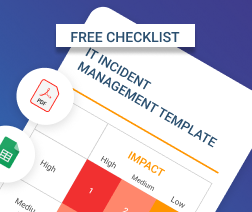MSP Business
Guide to ITIL Technical Management Practices
No matter what your IT environment looks like, you need deep technical expertise to manage it. Ensuring that such technical expertise is available is the goal of the technical management practices that are defined in the IT Infrastructure Library, or ITIL.
Keep reading for a primer on ITIL technical management practices, including why they are important, where they fit within the broader ITIL framework and which specific technical management practices the ITIL defines.
What Is ITIL Technical Management?
Under the ITIL, technical management is a set of processes that govern how IT organizations set up and deploy the technological core of their systems.
ITIL distinguishes between technical management and general management, which focuses more on aligning IT goals with business goals. ITIL also has a service management category, which deals primarily with managing systems after they have been set up.
The ITIL defines technical management as a "function." Thus, when the ITIL refers to technical management practices, it's focusing specifically on the people and tools who will implement those processes. It's not about specific technologies; you could implement ITIL technical management practices using a variety of different tools or platforms.
The Importance of Technical Management
Technical management is important in any IT environment, because it lays the foundation for creating and validating complex systems. In turn, it ensures that businesses are able to deploy the technology they need in order to meet their goals, and that they have the tools in place to boost productivity and achieve innovation.
Technical management also plays a role in keeping systems up to date and upgrading to newer technologies when they become available.
Key ITIL Technical Management Practices
ITIL technical management involves several specific types of practices. Following are the most important examples of technical management processes for a typical business.
Infrastructure and Platform Management
Every type of IT resource or asset needs infrastructure to run on (not to mention to connect it to other resources). As part of technical management, IT teams assess the infrastructure and platforms that their organization currently uses, as well as new ones that may become available.
When they deem an existing solution to be outdated, they are responsible for planning and implementing an infrastructure or platform upgrade.

Deployment Management
When a new platform, infrastructure component, application or other resource is ready for deployment, IT teams handle this process as part of technical management. Deployment management typically focuses on deploying new resources into production use, but it could also involve deployment into testing or staging environments.
Software Assessment and Development
ITIL technical management processes extend to software development as well. Teams must continuously assess their business's existing software resources to determine whether they are adequate. When software upgrades are needed, they define the requirements for the new software and oversee the development and deployment process.
Technical Knowledge Management
Given that assessing and updating systems is a core focus of technical management, it only makes sense that keeping track of the technical information associated with a business's systems also falls partly under the category of technical management. When they set up systems, teams must ensure that they document or otherwise record the knowledge needed to understand and maintain technical systems on an ongoing basis.
That said, knowledge management as a whole is defined by the ITIL as part of the general management function, rather than technical management. Still, it's a good idea to make technical information management a part of the technical practices that businesses use to plan and deploy new resources.
Conclusion
Under the ITIL, technical management practices play a leading role in ensuring that businesses can identify and implement the infrastructure and software they need in order to achieve their goals. In addition, technical management helps businesses manage the technical knowledge that allows them to assess and maintain their technologies.



